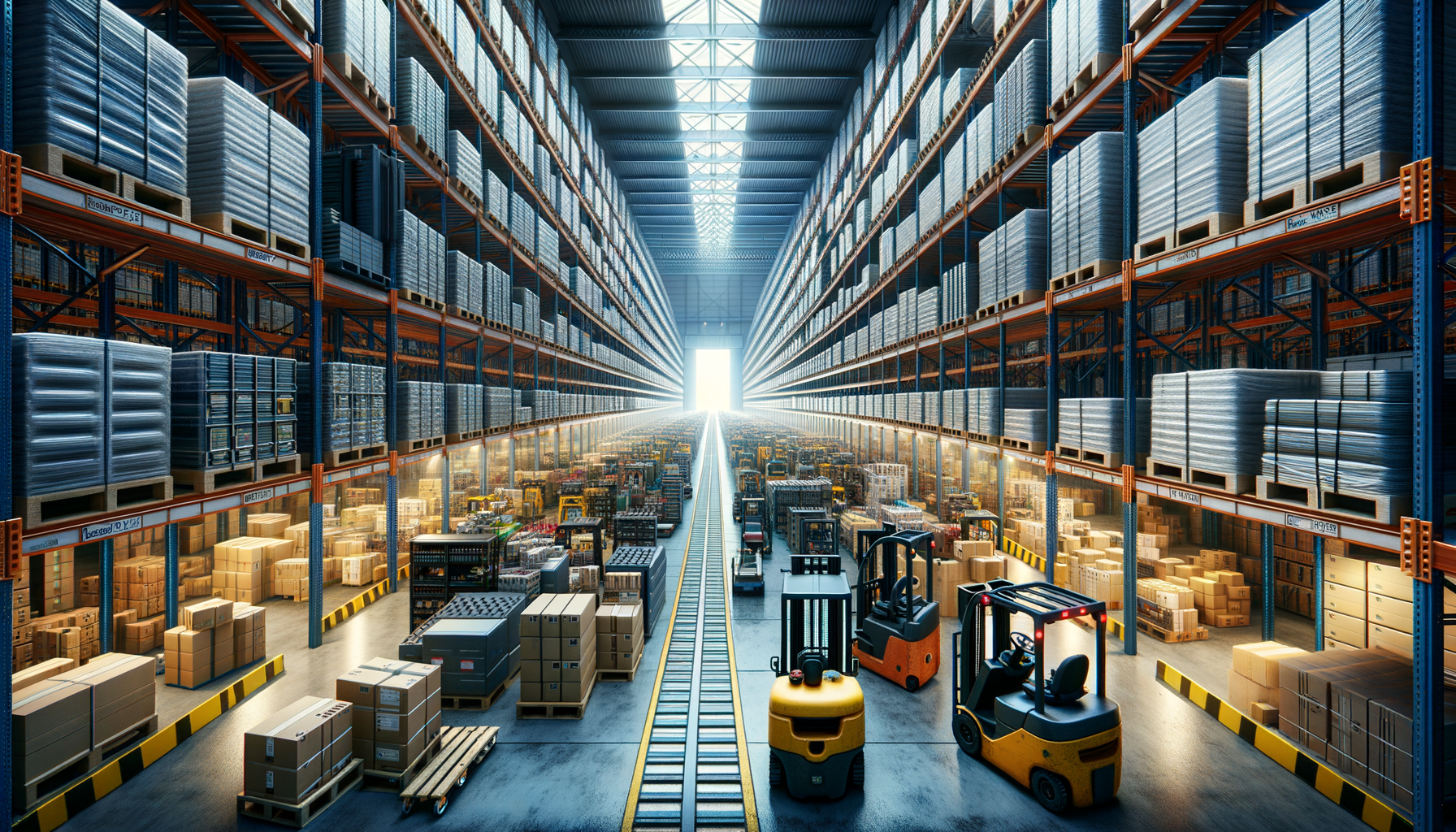Exploring the World of Warehouse Jobs and Services
Discover the diverse opportunities and essential services in the warehouse industry.

Understanding Warehouse Jobs
Warehouse jobs are the backbone of the logistics and supply chain industry. They encompass a wide range of roles that are crucial for the efficient operation of businesses that deal with physical goods. From entry-level positions to management roles, warehouses offer a variety of job opportunities that cater to different skill sets and career aspirations.
The primary roles in a warehouse include pickers and packers, forklift operators, inventory managers, and logistics coordinators. Each of these positions plays a vital part in ensuring that goods are stored, handled, and transported effectively. For instance, pickers and packers are responsible for selecting items from the shelves and preparing them for shipment, while forklift operators move heavy items within the warehouse.
Warehouse jobs often require physical stamina and attention to detail, as workers must handle goods with care to prevent damage. Furthermore, as technology advances, there is a growing demand for workers who are adept at using warehouse management systems and other software tools to track inventory and streamline operations. This shift towards technology integration opens new avenues for tech-savvy individuals seeking to enter the warehouse industry.
Interesting Warehouse Job Opportunities
The warehouse industry is evolving, creating interesting job opportunities that go beyond traditional roles. One such opportunity is the role of a warehouse automation specialist. As warehouses increasingly adopt automated systems, specialists are needed to manage and maintain these technologies. These professionals ensure that automated processes run smoothly and efficiently, minimizing downtime and maximizing productivity.
Another intriguing position is that of a sustainability coordinator. With the growing emphasis on environmental responsibility, warehouses are looking for experts who can implement sustainable practices, such as reducing waste and optimizing energy use. This role not only helps businesses reduce their carbon footprint but also aligns with global efforts towards sustainability.
Additionally, the rise of e-commerce has led to the emergence of roles focused on last-mile delivery solutions. These positions involve coordinating the final stage of the delivery process, ensuring that goods reach customers promptly and in perfect condition. As consumer expectations continue to rise, last-mile delivery specialists play a crucial role in maintaining customer satisfaction.
Key Warehouse Services and Their Importance
Warehouse services are essential components of the supply chain, providing storage, handling, and distribution solutions for businesses of all sizes. These services ensure that goods are stored safely and efficiently, ready for distribution when needed. The importance of warehouse services cannot be overstated, as they directly impact the speed and reliability of the supply chain.
One of the primary services offered by warehouses is inventory management. This involves the systematic tracking of goods as they enter and leave the warehouse. Effective inventory management helps businesses maintain optimal stock levels, reducing the risk of overstocking or stockouts. Advanced inventory management systems use real-time data to provide insights into stock levels, demand patterns, and reorder points.
Warehouses also offer value-added services, such as packaging, labeling, and kitting. These services enhance the efficiency of the supply chain by preparing goods for distribution in a manner that meets specific customer requirements. For example, kitting involves assembling individual items into ready-to-ship kits, streamlining the order fulfillment process.
Challenges and Innovations in Warehouse Services
Despite their importance, warehouse services face several challenges that require innovative solutions. One of the main challenges is the need to adapt to fluctuating demand. Seasonal variations and sudden spikes in demand can strain warehouse resources, leading to delays and inefficiencies. To address this, many warehouses are adopting flexible staffing models and advanced forecasting tools to better anticipate and respond to changes in demand.
Another challenge is maintaining accuracy and efficiency in order fulfillment. Errors in picking and packing can lead to customer dissatisfaction and increased costs. To mitigate this, warehouses are investing in technologies such as barcode scanning and RFID systems to ensure precise tracking and handling of goods.
Innovations such as automation and robotics are transforming warehouse operations, enabling faster and more accurate processing of goods. Automated systems can handle repetitive tasks with high precision, freeing up human workers to focus on more complex activities. As these technologies continue to evolve, they promise to enhance the efficiency and reliability of warehouse services.
Conclusion: The Future of Warehouse Jobs and Services
The warehouse industry is a dynamic and essential part of the global economy, offering a wide range of job opportunities and services that are crucial for the seamless operation of supply chains. As technology continues to advance, the industry is poised for further growth and transformation, creating new roles and enhancing existing services.
For individuals seeking a career in the warehouse sector, the future is bright with opportunities for growth and advancement. Whether interested in traditional roles or emerging positions driven by technological innovation, the warehouse industry offers a diverse and rewarding career path. As businesses continue to prioritize efficiency and sustainability, the demand for skilled professionals in this field is likely to increase, making it an exciting time to explore the world of warehouse jobs and services.